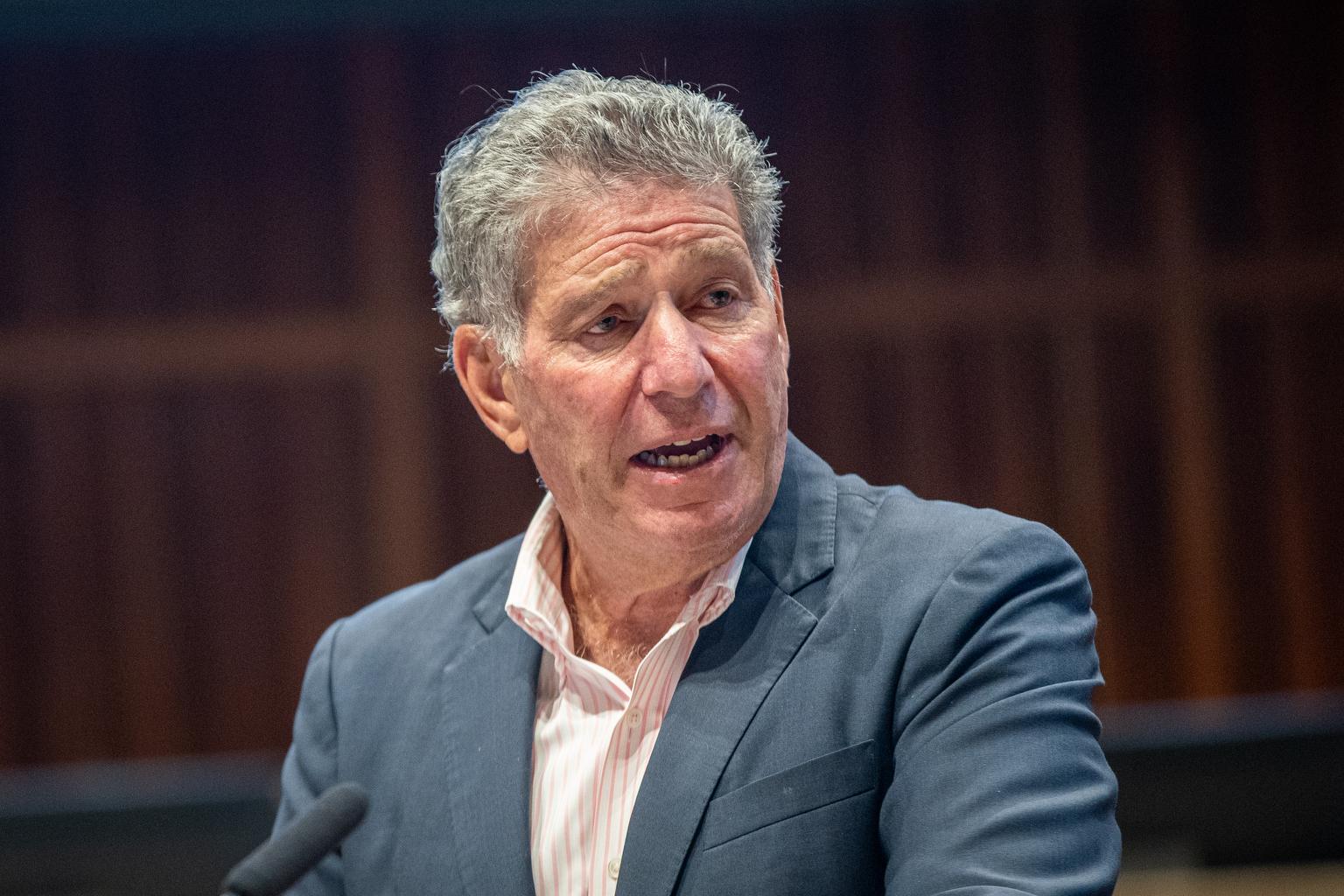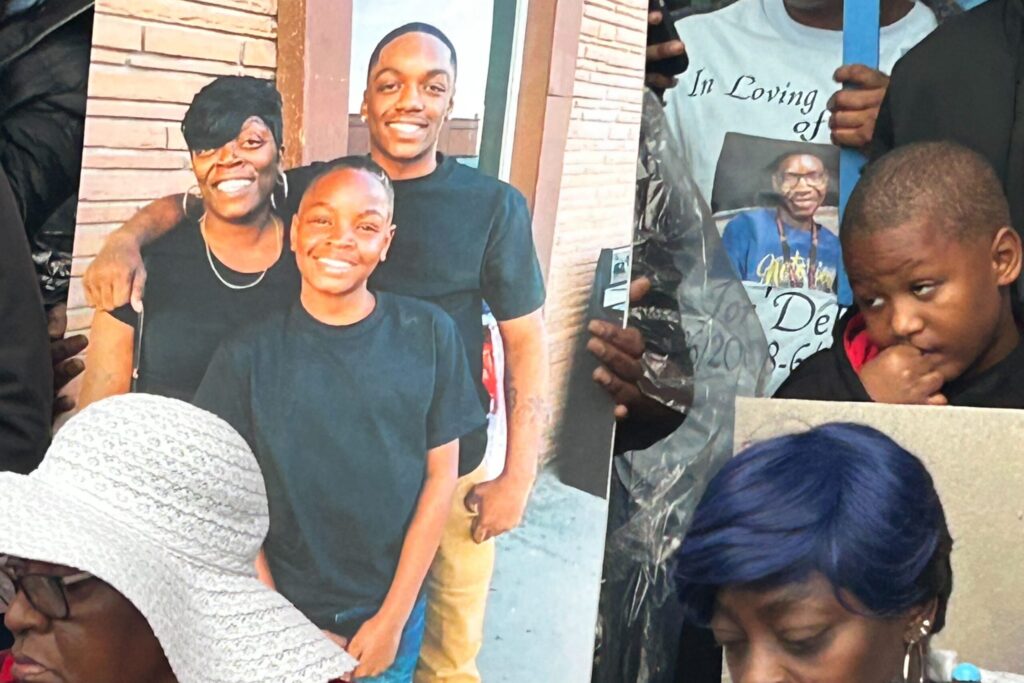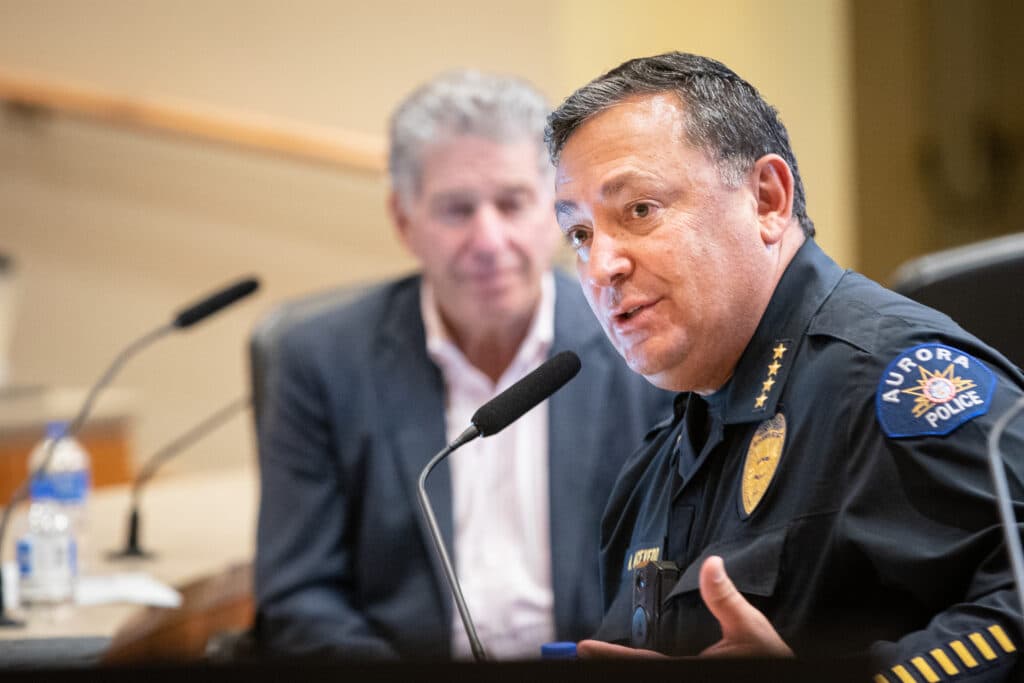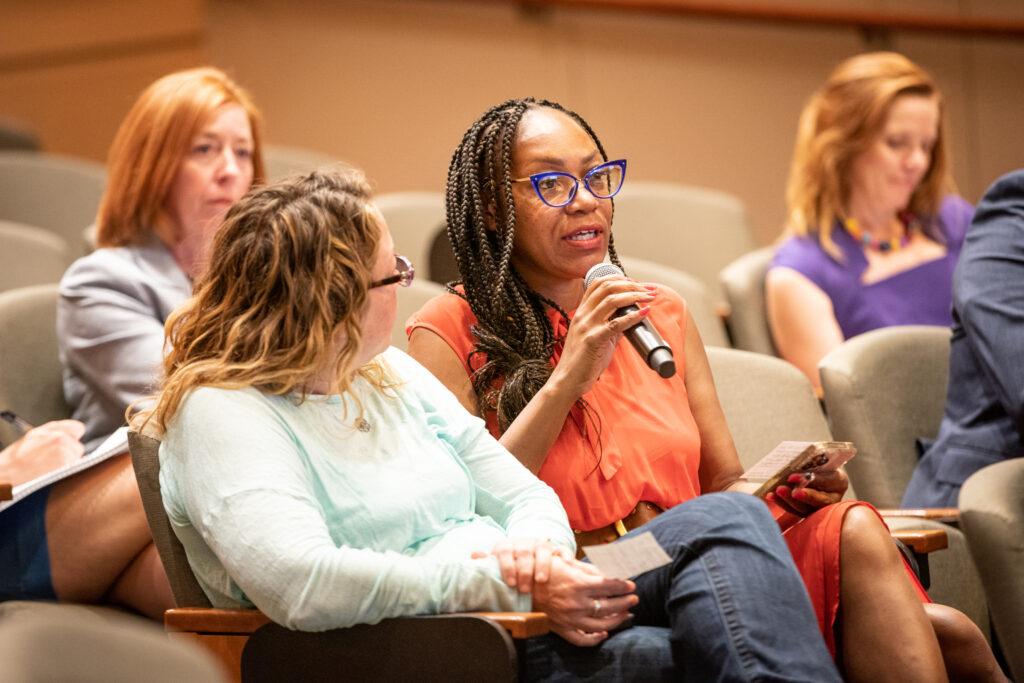
In June, an Aurora Police officer killed a 14-year-old boy who the officer and his colleagues saw running out of a liquor store with multiple other people, carrying merchandise from the store. The officers chased the teen, Jor’Dell Richardson, who was armed with a pellet gun made to look like a firearm, and Officer Roch Gruszeczka shot him.
An internal investigation found this month that the officers acted consistently with their training, with the exception of relatively small violations about body camera usage and the use of a swear word during the chase. That followed the district attorney’s decision not to charge any of the officers criminally.
But Richardson’s death is also a benchmark for extensive reforms to policing that are underway in Aurora with oversight from the state. The reforms were mandated two years after Elijah McClain died from an encounter with police. (One officer has been found guilty of criminally negligent homicide and third degree assault in McClain’s death, and other public safety employees are on trial.)
With Richardson, the Aurora Police Department has been criticized by community members and activists over inaccurate information released by the police chief in an attempt at transparency, and they want to hear how police will avoid a killing like this in the future.
The reforms that are underway are guided by an independent consultant known as the consent decree monitor, who is now weighing in on the Aurora Police Department’s internal investigation into Richardson’s killing, to see whether it shows progress in how Aurora handles incidents where officers shoot people.

The monitor’s findings, discussed at a community forum Tuesday night in Aurora, found the internal investigation was done appropriately, asked the right questions, looked at the right evidence, and reached conclusions consistent with that evidence. The monitor did not detect any bias toward the officers in the way the investigation was conducted.
However, the monitor cited problems with the police department’s transparency with Richardson’s family and the public.
Limitations of the monitor’s review
The consent decree monitor did not interrogate whether Aurora Police could’ve handled the confrontation with Richardson differently, to avoid shooting and killing him. That type of independent review is not in the purview of the consent decree, highlighting why some community members want to see Aurora establish an independent monitor’s office with more investigative functions.
However, there is one more official review of Jor’Dell Richardon’s shooting death left to do, by Aurora Police’s Force Review Board. That board should interrogate how and whether officers could have avoided shooting and killing Richardson.
As part of Aurora’s mandated police reforms, the monitor’s office has been working with the Force Review Board to help it bring more scrutiny to its case reviews. Specifically, the monitor has instructed the board to ask itself, “What could have been done differently to have potentially achieved a better outcome?”
Problems with transparency after Jor’Dell Richardson’s shooting death
In interviews, Aurora Interim Police Chief Art Acevedo talks a lot about how much he values transparency, and has made himself available to the public in ways that were not common before his arrival. The monitor’s review notes that the chief personally notified Richardson’s family of his death, and gave the family his cell phone number, “with a request to call him directly with any questions or concerns and an offer for the family to view the body-worn camera footage from the incident whenever they were ready to do so.”
The monitor also notes that Aurora publicly released the body-camera footage eight days after the shooting, which the monitor notes was the fastest the city had ever done so for a fatal shooting involving police.
However, in the days after the officer shot Richardson, police held two press conferences in quick succession, after meeting with the family. Some of the information delivered by Acevedo was inconsistent in those appearances, which set off anger in the community and caused doubts about whether Acevedo had made an honest mistake or was trying to put more blame on Richardson for his own death.
“We found that the Department, in many ways, attempted to provide maximum transparency to the public, but failed, in the early stages of the investigation, to best ensure that the information which was being provided to the public was accurate,” the consent decree monitor, Jeff Schlanger, wrote in his review.

Most notably, on June 6, five days after Richardson was killed, Acevedo said the teen had been carrying a “semiautomatic” gun. Three days later, he said it was a pellet gun, designed to be an exact replica of a firearm.
The monitor also pointed out that Richardson’s family originally received inaccurate information about how much their son suffered before his death; and information released about the disciplinary record of one of the officers who was involved was incomplete.
“We did not find any indications that the failures were intentional. However, we believe the failure could have and should have been avoided,” Schlanger wrote.
The monitor’s office recommends Aurora Police come up with a firmer policy around how and when information gets shared after a shooting that involves officers, and who shares it.
But Aurora resident Maisha Fields, who is one of the community members formally working with the consent decree monitor, expressed continued frustration on Tuesday.
“The details around Jor’Dell Richardson trickled out like a leaky faucet. That should never happen. We should always present accurate facts,” Fields said.
She said that Richardson’s family, as well as community members who are raising Black children, for example, are victimized, too, by hearing about a young Black man dying from a police bullet. False information is like salt in those wounds.
“To automatically assume that the young man is guilty, and just to act like Black bodies don’t matter, is never the way that we should go, and that’s the culture that we must change, because all lives matter, and Black bodies definitely matter,” Fields said.
“We deserve the truth, and nothing but the truth, and when you speak to the community, that’s exactly what you should come with, because we’re already a city that’s dealing with unrest and a lack of trust with the police department.”

But Acevedo pushed back on the monitor’s findings.
“Some of the criticism I understand because it’s still a pretty new process for me, but we are not going to stop being transparent. I think that ship has sailed in our country: the days of ‘no comment’... are long gone,” he said Tuesday.
“Transparency sometimes comes at cost, where you may not get everything right. But I would rather give as much information as I can, be as transparent as I can, and quite honestly, if we get something wrong, update the community and involved parties as soon as we can. The alternative is we wait a week, we wait 90 days” for a criminal investigation to be completed before releasing information and video footage, the chief said.









